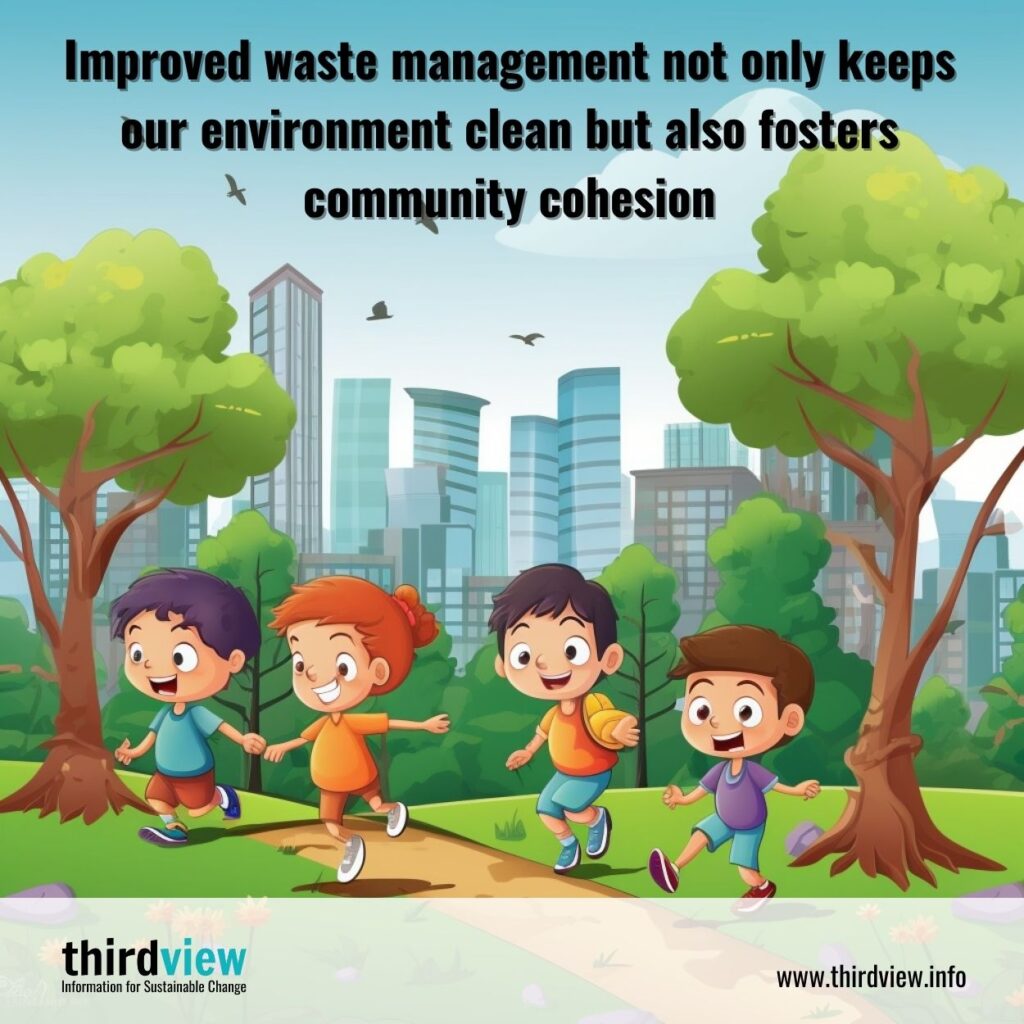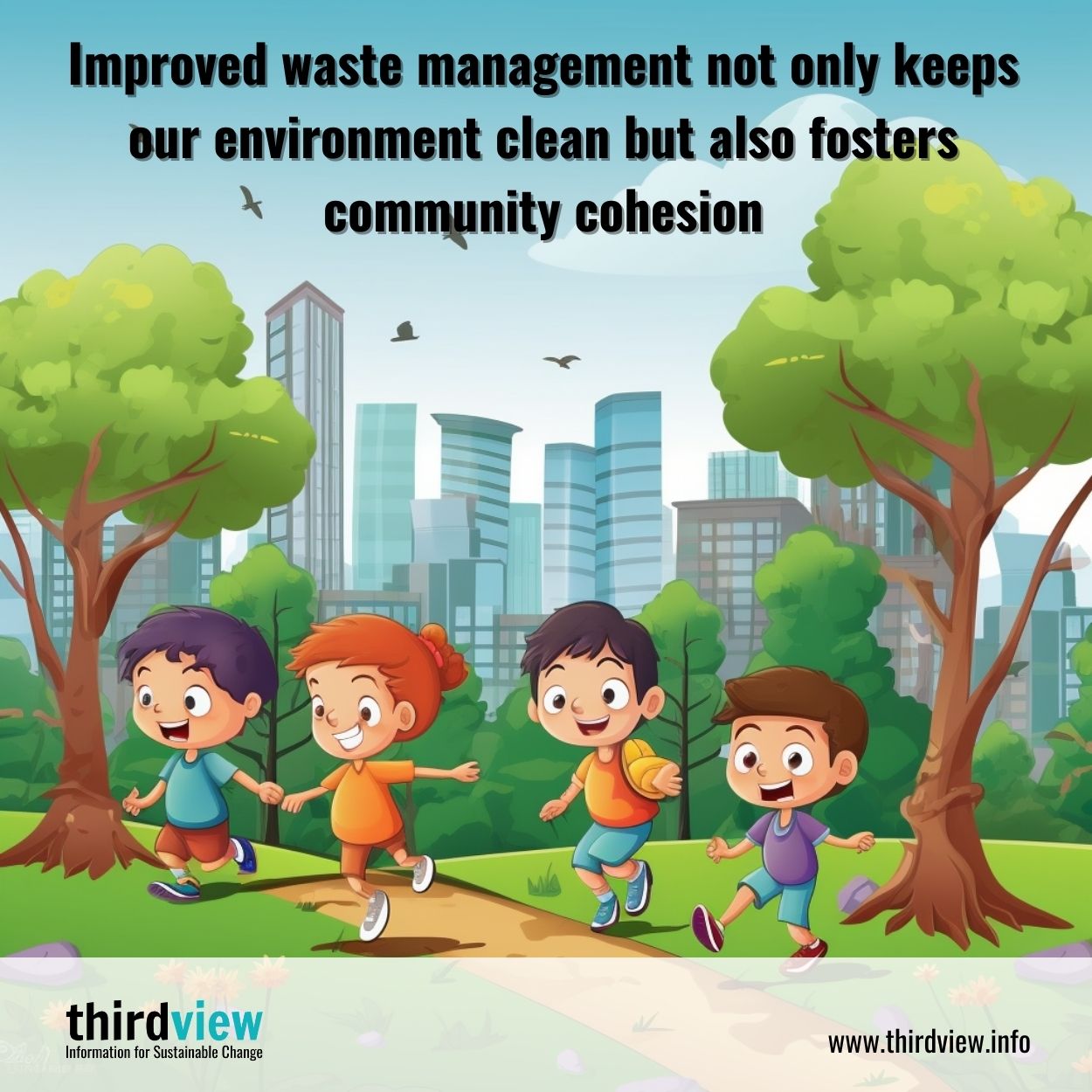Waste management is a crucial aspect of urban development. However, the challenges faced by developing countries in managing waste are significant. Urbanization, population growth, poverty, and unplanned settlements have all contributed to the waste management crisis in these countries. The traditional approach to waste management often involves only the collection and disposal of waste materials, which has adverse effects on the environment. This blog discusses the lesser-known benefits of improved waste management in achieving environmental goals in developing countries.
Reduces Pollution
Waste that is not managed properly tends to pile up in open spaces, water bodies, and landfills. This waste produces harmful chemicals and toxins that seep into the soil, contaminate water sources, and pollute the air. Improved waste management can reduce the amount of waste that ends up in open spaces, thereby reducing the spread of pollution. Using incinerators and waste-to-energy plants can convert waste into a useful resource while reducing the amount of waste in landfills. This will help reduce pollution levels in the environment and improve air quality.
Improves Health and Well-being
The poor management of waste has severe consequences on public health. Waste that remains uncollected can create breeding grounds for pests and disease-carrying insects, which can cause an outbreak of diseases such as cholera, dengue fever, and typhoid. Proper waste management systems that prioritize public health can prevent the spread of disease by minimizing exposure to harmful waste materials. Improved waste management can help reduce mortality rates from diseases related to poor waste management practices.
Generates Employment Opportunities
Improved waste management creates job opportunities for waste collectors, sorters, and recyclers, thereby boosting local economic growth. In developing countries, where unemployment rates tend to be high, improved waste management can provide a source of income for people who may not have many employment options. Additionally, the revenue generated from recyclable materials can be reinvested in the waste management system, leading to greater efficiency.
Promotes Sustainable Development
Improved waste management aligns with the United Nations’ Sustainable Development Goals (SDGs). Waste reduction and disposal practices that consider the environment, public health, and local economics ensure sustainable development. Implementing these practices in developing countries helps meet the SDG target to reduce waste production and implement the 3Rs (Reduce, Reuse, Recycle) approach. When waste is minimized, and resources are repurposed, the environmental impact of waste production is significantly reduced.
Fosters Community Cohesion
Good waste management practices can foster a sense of community among residents. When waste is collected, residents feel like they are part of a shared responsibility to keep their environment clean and safe. This sense of community can encourage other social responsibility initiatives, such as volunteering for community projects or supporting local businesses. By fostering community cohesion, improved waste management creates a positive social culture beneficial for sustainable development.
Improved waste management practices provide a broad range of social, environmental, and economic benefits that help developing countries achieve their environmental goals. We can create sustainable communities by prioritizing waste reduction and disposal practices that consider the environment, public health, and local economics. The benefits of improved waste management are plentiful, and it is up to policymakers, local authorities, and individuals to implement and maintain waste management systems that are equitable, efficient, and sustainable. Adopting these practices is fundamental to achieving a cleaner, healthier, and more sustainable future.


